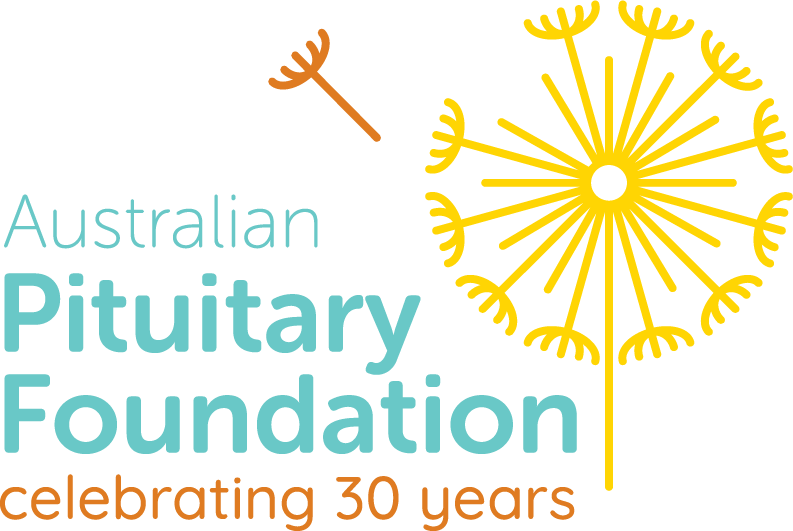Bob’s Journey
Hypopituitarism

Hitting my shin on a towbar provided me with answers.
Late in 2001, I had my 18-year old coronary bypass grafts reworked. The procedure had its problems and I was on life support for 4 days. Whilst the operation was successful, I didn’t fully recover and my health slowly deteriorated. Over the next 4 years I was referred to various specialists to try to get an answer without any improvement.
By 2005, all my joints were aching, my brain was ‘foggy’, was continuously tired and had cognitive issues. I would fall ill very easily and take some time to recover. My performance at work suffered a as result. Any stress would result in a horrible feeling of dread in the pit of my stomach.
Early 2006, I hit my shin on a tow-bar and the wound wouldn’t heal.
I went to a GP whom I hadn’t seen for a while. She took one look at me and said that I had a bigger issue to address. I possibly had a thyroid problem. I had a quick blood test and she sent me to my cardiologist to start immediately on thyroxine. He referred to my present Endocrinologist
At that time, my heart was just ticking over at around 30bpm. When I started on Thyroxine, it would suddenly spike up to 170bpm for a short time. It was somewhat scary at the time but after a few weeks it settled down to a ‘normal’ level.
The endocrinologist said that I had the classic appearance of someone who has hypopituitarism and arranged for me to have a series of blood tests.
The results were “strongly suggestive of hypopituitarism”.
Until that time, I didn’t even know that I had a pituitary gland!
I was sent for an MRI and had other tests to check what was happening.
There was no indication as to the cause of the problem (“idiopathic”).
Possibly during the time that I was on life support, a drop in blood pressure may have resulted in shortage of oxygen supply around the pituitary gland.
This meant that my glands were not receiving the necessary signals to produce hormones; I needed to start on a hormone replacement program.
This would be a slow process of introducing one hormone at a time; looking at the results and bring the levels up progressively. Each time a change is made to one hormone, the others needs to be adjusted to stay in balance.
Once the thyroid settled down, I started taking hydrocortisone.
A downside of cortisone as that I gained some 10kgs in a short period. The levels of cortisone are essentially based on how I responded. Previous stress reactions disappeared.
9 months into the program, testosterone replacement was introduced using Testogel (a gel applied to the body). As testosterone may have an effect on the prostrate, I see a Urologist every year to review PSA level and for a digital exam. Everything is normal.
After 18 months in the program, I was diagnosed with atrial fibrillation (AF), “a side effect of cortisone replacement” said my cardiologist. I was also identified as having secondary hyperparathyroidism.
The last hormone that was to be introduced was growth hormone; I didn’t pursue it as it was extremely expensive. I participated in a growth hormone trial which was completed around March 2017, the last 6 months was being on growth hormone rather than possible placebos. The growth hormone helped me to lose weight and feel a lot better, so I decided to start on Genotropin (Pfizer’s growth hormone). This was in the form of a daily injection. Genotropin is now available on the PBS, subject to very strict guidelines.
I have changed from Testogel to using testosterone patches which is easier to incorporate into my evening medication routine.
My cortisone (Hysone) use has been reduced to 20 mg per day. This is a borderline level.
I carry Hysone tablets with me every time I leave home; and have learnt to manage my cortisone levels to manage stress situations such as hospital procedures, sickness, travelling etc.
I wear a MedicAlert necklace and carry advice that I’m steroid dependent.
When I travel, I take along an emergency cortisone injection.
I am seeing my endocrinologist 6 monthly to monitor blood results and how I’m feeling.
It has been an interesting journey. I am grateful for the support of the Australian Pituitary Foundation throughout my journal with hypopituitarism.
